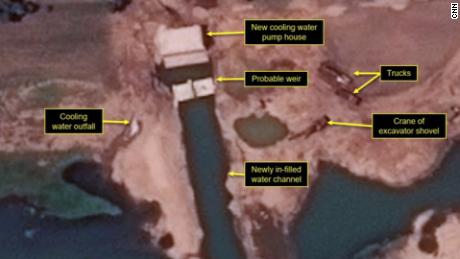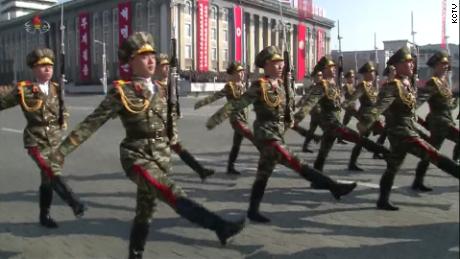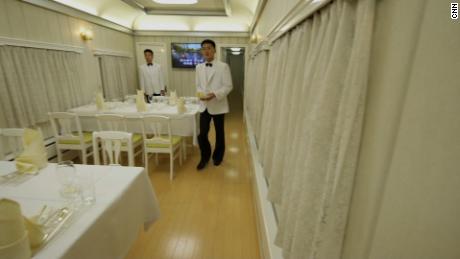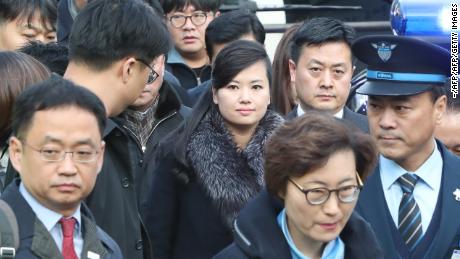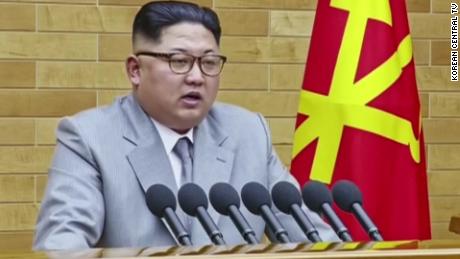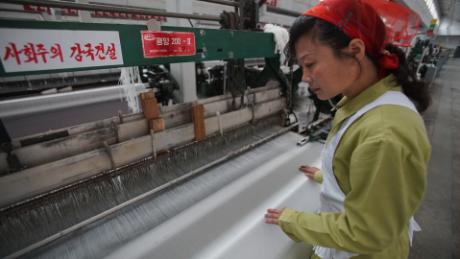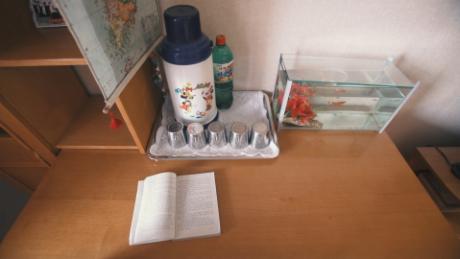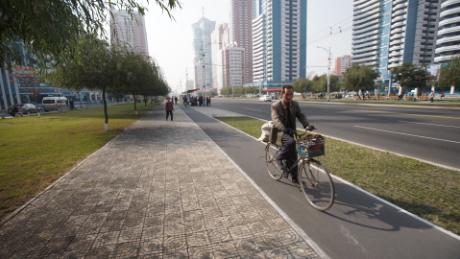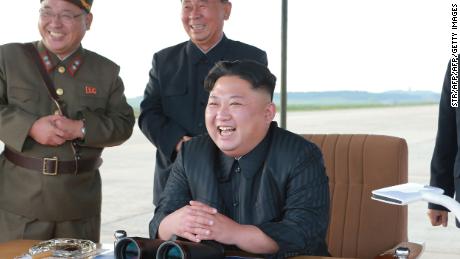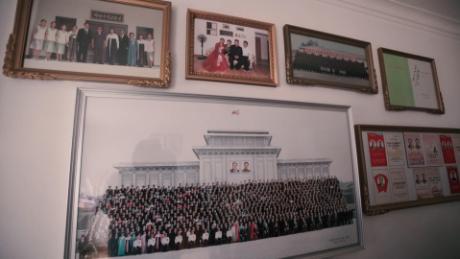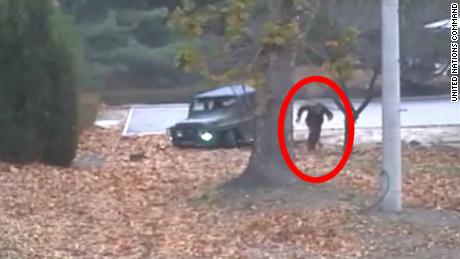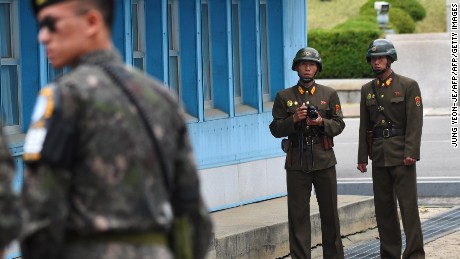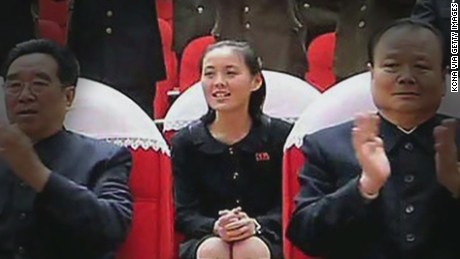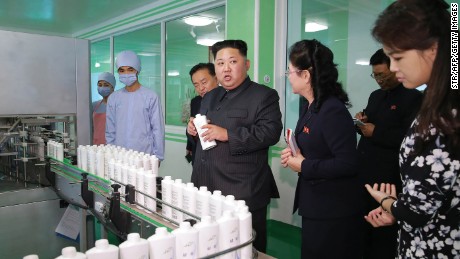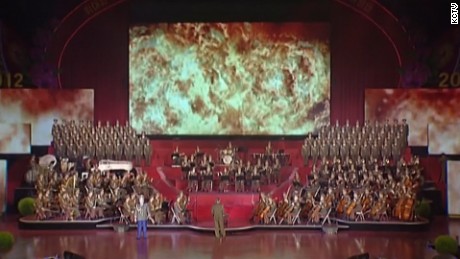Story highlights
- "It's unreal just to see that I'm actually sitting in the studio talking to you," Kenneth Bae tells CNN
- Bae gives his first live interview since his release from North Korea in 2014
- He was sentenced to 15 years of hard labor over unspecified "hostile acts"
(CNN)Kenneth Bae spent almost two years performing grueling work for the North Korean regime -- and had another decade of hard labor ahead of him.
But he's no longer shoveling coal and hauling rocks. Instead, the American sat down with CNN's Chris Cuomo on Monday for his first live interview since his 2014 release.
"I'm thankful every day and grateful for so many people that were involved in trying to get me home," Bae said. "It's unreal just to see that I'm actually sitting in the studio talking to you ... 735 days in North Korea was long enough. But I'm thankful."
Bae was the longest-held U.S. citizen detained in North Korea since the Korean War. In 2013, he was sentenced to 15 years of hard labor for committing unspecified "hostile acts" in the country.
"I worked from 8 a.m. to 6 pm. at night, working on the field, carrying rock, shoveling coal," Bae said on CNN's "New Day."
Adding to the physical pain was the verbal abuse he received from North Korean officials, Bae said.
He said one prosecutor repeatedly told him, " 'No one remembers you. You have been forgotten by people, your government. You're not going home anytime soon. You'll be here for 15 years. You'll be 60 before you go home.' "
Still, Bae held out hope.
"I certainly hoped when I was in North Korea ... that some day I'll be able to come home and celebrate with the friends and family that have been praying, rooting for my release," he said.
His wish came true in November 2014 after a top U.S. official -- carrying a letter from President Barack Obama -- arrived in North Korea. Shortly afterward, North Korean leader Kim Jong Un ordered Bae's release.
From tour operator to prisoner
Bae, a South Korean-born U.S. citizen, moved to China in 2005 and established a company that specialized in tours of North Korea, family and friends said.
He was leading a tour when he was arrested in November 2012. He was sentenced in April 2013 over "hostile acts."
It's not clear what these were. But in a pretaped statement released in March, Bae said he "made a terrible mistake by carrying a portable hard drive containing hostile, anti-North Korean material by accident."
Bae is a devout Christian, which led some to speculate he was carrying religious items. North Korea is officially an atheist state, and the country claimed Bae was part of a Christian plot to overthrow the regime.
But it was Bae's faith that helped him deal with the physical and verbal agony.
"Along the way, I found my way adjusting to life in the North Korean prison, just depending on God," he said Monday.
"And I knew the U.S. government would do everything possible that (would) bring me home."
The Rodman factor
Bae's imprisonment gained widespread publicity after former basketball star Dennis Rodman -- who once called the North Korean leader a friend and "very good guy" -- lambasted Bae on CNN's "New Day" in 2014.
Rodman provoked outrage after suggesting that Bae may have done something to deserve his sentence of 15 years of hard labor. Rodman later apologized, saying he had been drinking.
But Bae thanked Rodman for his 2014 outburst, saying it drew attention to his ordeal in North Korea.
"I thank Dennis Rodman for being a catalyst for my release," Bae said Monday.
A surprise 5-minute meeting
About a year after Bae's sentencing, a CNN team on a government tour in North Korea was quickly ushered away by officials.
The crew boarded a van to a secret location two hours away. There, at a Pyongyang hotel, the government surprised the crew with Bae and two other detained Americans -- Matthew Todd Miller and Jeffrey Edward Fowle.
Each detainee was given five minutes to speak to CNN's Will Ripley.
All three men said they hoped the U.S. government would send an envoy to North Korea to help free them.
"I've been going back and forth between hospital and to the labor camp for the last year and a half," Bae told Ripley.
He said his health had been "failing" over the past 1┬Į months.
"My hands are numb and tingling, and it's difficult sleeping at night," he said. "I was working in the field every day."
During his captivity, Bae lost 60 pounds.
Coming home to the U.S.
Two months after that interview, in November 2014, the U.S. State Department announced it secured the release of Bae and Miller. The third detained American, Fowle, was released in October 2014.
At the time, Bae thanked the U.S. and North Korean governments and did not speak publicly again until this March, when he promoted his book, "Not Forgotten."
The memoir, which will be released Tuesday by HarperCollins' Christian-themed division, will likely have strong religious undertones.
"One thing I want people to take away from reading the book is God's faithfulness," Bae said. "After I was released, I was reminded that God has not forgotten the people of North Korea."



